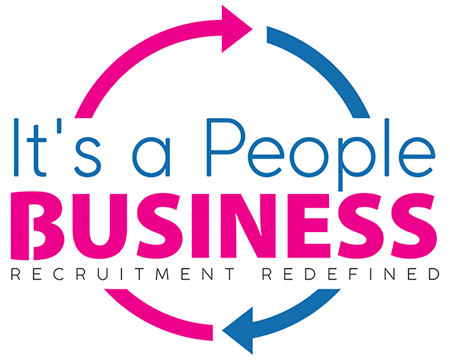
As companies continue to grow and expand, the importance of having a successful onboarding program for new hires becomes increasingly crucial. An effective onboarding program can help organisations retain top talent, improve productivity, and boost employee morale. However, many companies fail to implement a comprehensive onboarding process and miss out on these benefits. Creating an effective onboarding program is not a one-size-fits-all solution. It requires careful planning, thorough preparation, and ongoing evaluation. The goal of a successful onboarding program is to provide new hires with the necessary resources, knowledge, and support to help them integrate into the company culture, understand their role, and contribute to the organisation's success.
Read More: The Future of Work: Predictions for Online Recruitment in the Next Decade
1. Establish clear performance expectations
1. Establish clear performance expectations

Creating an Effective Onboarding Program for New Hires requires careful planning and execution to ensure that employees are set up for success. One key aspect of an effective onboarding program is establishing clear performance expectations. New hires must understand what is expected of them in terms of job duties, goals, and performance metrics. This helps to ensure that they are aligned with company objectives and have a clear understanding of what is required to succeed in their role. Setting clear performance expectations from the beginning not only minimises potential misunderstandings or conflicts but also enables new hires to quickly integrate into the company and make immediate contributions to its success.
By clearly outlining what is expected of them in terms of job performance, goals, and deliverables, new employees gain a clear understanding of what is required to meet and exceed expectations. This clarity helps them align their efforts with the organisation's objectives and ensures they focus on the right priorities.
Create a positive and productive work environment.
Create a positive and productive work environment.
Moreover, establishing clear performance expectations creates a sense of accountability and fosters a culture of high performance within the company. When employees have a clear understanding of what is expected of them, they are more likely to take ownership of their responsibilities and strive for excellence. This proactive approach not only benefits individual employees but also contributes to the overall productivity and success of the organisation. By providing clarity regarding performance expectations, businesses can effectively onboard new hires and create a positive and productive work environment.
2. Provide comprehensive orientation training
2. Provide comprehensive orientation training

Providing comprehensive orientation training is one of the most crucial steps in creating an effective onboarding program for new hires. It is important to ensure that new employees have a clear understanding of the company's mission, values, and goals, as well as their role in achieving them. Orientation training can include information on company policies and procedures, as well as an introduction to the company's culture, history, and organisational structure. Additionally, providing training on the tools and technologies used within the company can help new hires become more productive more quickly. By investing the time and resources into providing thorough orientation training, new employees will feel more confident and motivated in their new role, which can ultimately lead to higher job satisfaction and retention rates.
Read More: Mastering Talent Acquisition: Strategies and Best Practices for Recruiting Top Candidates
3. Assign a dedicated mentor
3. Assign a dedicated mentor
Assigning a dedicated mentor to new hires can greatly enhance an Effective Onboarding program. A mentor can provide guidance, answer questions, and help the new employee acclimate to the company culture. This personalised attention can make the onboarding process less overwhelming and more efficient. The mentor should be someone who has experience in the new hire's department and can offer insight into the company's operations.
Read More: Mastering the Main Stages of Any Recruitment Discussion: A Practical Guide for Employers
It is important to choose a mentor who is enthusiastic about the role and willing to invest time and effort into the new hire's success. The mentor-mentee relationship should be built on trust and open communication, allowing for constructive feedback and support throughout the onboarding process. By utilising a dedicated mentor in the onboarding program, the new hire is more likely to feel supported and valued, leading to increased retention and productivity.
4. Offer ongoing learning opportunities
4. Offer ongoing learning opportunities

Offering ongoing learning opportunities is a crucial component of an effective onboarding program for new hires. Providing continuous education and training not only helps employees improve their skills and knowledge but also demonstrates that the company is invested in their professional development. This can lead to increased job satisfaction and higher retention rates.
Read More: The Benefits of Working with a Flat Fee Recruiter
Encourage employees to take advantage of learning opportunities.
Ongoing learning opportunities can take various forms, such as mentorship programs, access to online courses and training materials, or regular workshops and seminars. It is important to establish clear expectations and goals for these opportunities and to encourage employees to take advantage of them. By prioritising ongoing learning, companies can foster a culture of growth and development that benefits both employees and the organisation as a whole.
5. Solicit feedback for continuous improvement
5. Solicit feedback for continuous improvement

An essential aspect of an Effective Onboarding Program for New Hires is to solicit feedback for continuous improvement. This process involves collecting feedback from both the new hires and the managers responsible for their training, as well as from other stakeholders involved in the onboarding process. The feedback should be collected regularly, preferably after each stage of the onboarding process, to ensure that any issues or concerns are addressed in a timely manner. It is crucial to establish a culture of open communication and encourage all parties involved to provide honest and constructive feedback. This way, you can make any necessary adjustments to the program and improve the experience for future new hires. By continuously reviewing and improving the onboarding program, you can ensure that your new hires feel supported, engaged, and motivated to contribute to the success of the organisation.
Conclusion
Conclusion
An effective onboarding program is a critical component of any organisation's success. It is essential to create a comprehensive and structured onboarding process that not only provides new employees with the necessary skills and knowledge but also creates a positive and welcoming environment. By investing time and resources in an effective onboarding program, organisations can ensure that new hires are set up for success, feel valued, and are more likely to become productive and engaged members of the team. With a well-designed onboarding program, organisations can reduce turnover rates, increase employee retention, and ultimately achieve their business goals.
Reach out to It's a People.Business for expert guidance and support in implementing these best practices. Our team of recruitment professionals can help you develop a cost-effective and efficient hiring strategy that aligns with your business goals. Contact us today to learn more and take the first step towards building a strong and talented team for your small business.